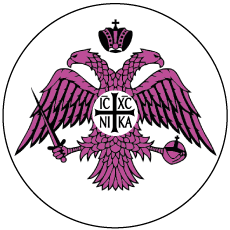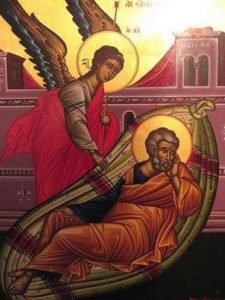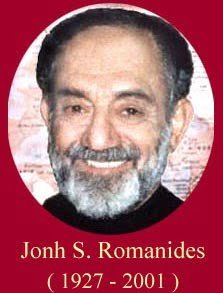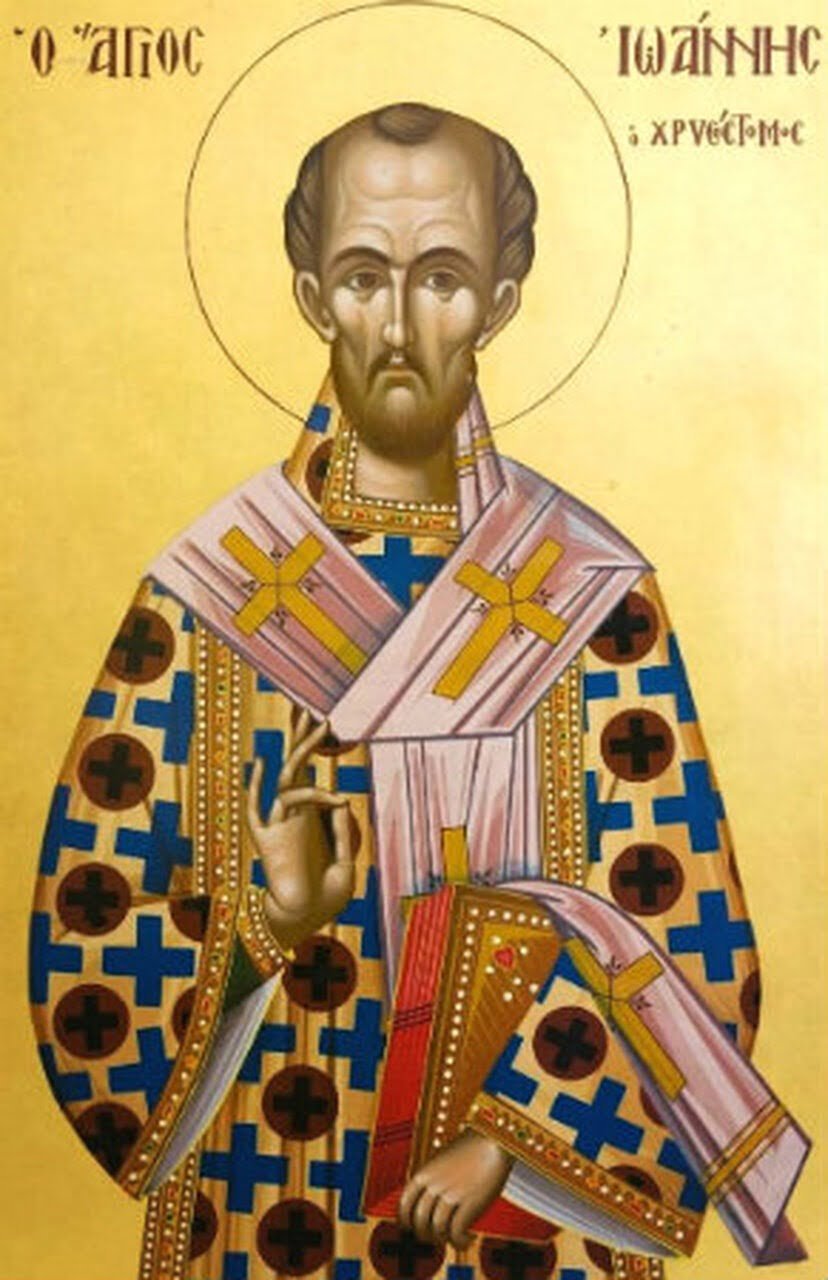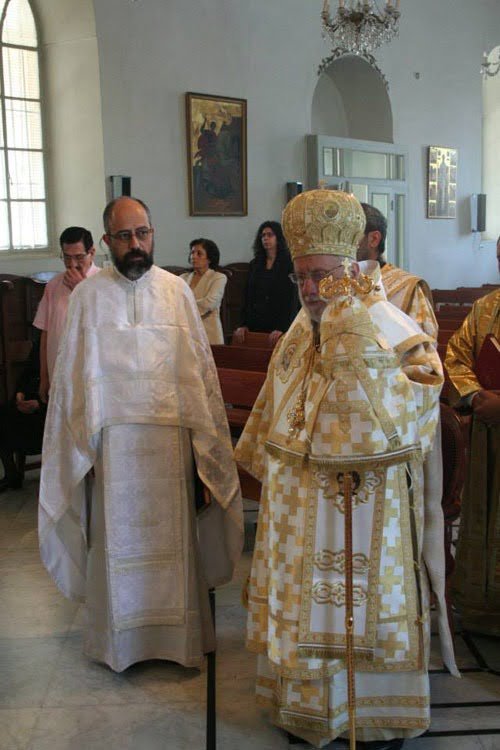The Gospel of the genealogy of Jesus
and the fear of Joseph!
On the Sunday before Christmas, we read during the Divine Liturgy the Gospel of Matthew 1: 1-25
When I was a child, I remember that I used to laugh when hearing those strange names, which are originally Hebrew names, translated to Greek and re-translated to Arabic adding all the Greek funny extensions.
Later on, when I became a Deacon, the elderly priest was happy to give the reading of those names to me and he was partly joking about it, as someone relieved him from that reading.
Nevertheless I had to preach after reading that Gospel, and according to the general guidance of our Bishop, in my Orthodox Church, I had to preach and to explain the Gospel and the Epistles as a first priority. I had to remember what we have been taught and also to make more studies and read what the Fathers of the Church have taught about that genealogy gospel. In time, this Gospel has never ceased to open my eyes to a deeper and deeper wisdom on how the Holy Spirit guided St. Matthew to select and put together those names in a magnificent way that aims to say a lot to the knowledgeable reader and listener. Moreover, since then this gospel became one of my favorite Gospels for teaching and preaching.
From the first two words of his first sentence; and by choosing these words βιβλος γενεσεως; the first word refers to the Bible and the second word derives and refers to the name of the first book of the Bible, “the Genesis” The Gospel of Matthew is suggesting that all the creation has a Genesis book and Jesus has his own Genesis book as well!
The second part of the first sentence: Jesus the Son of David, the Son of Abraham. So why this short abbreviation of all the names into three? Because Jesus is the fulfilment of the two promises of the Old Testament: The promise to Abraham “And in thy seed shall all the nations of the earth be blessed” (Gen 22:18). And the promise to David “The LORD hath sworn in truth unto David; he will not turn from it; Of the fruit of thy body will I set upon thy throne” (Ps 132:11). Two promises in one fulfilment.
After that, a series of names starts to be laid down; among these names we find names of women, not great women of whom the Jews are proud of like Sarai and Rebekah and Rachel, but Thamar who wore the dress of a harlot and who slept with her father in law (Gen 38: 15). And Rahab, a Canaanite prostitute (Joshua 2:1) who became part of the Jewish community. And the un-named Bathsheba, the woman that slept with David while her husband was still alive, and whose husband’s death was arranged by David in order to take her as wife, and whose name remained “her that had been the wife of Urias” (2 Sam 11) From stating these names Mathew wants to tell us that the ancestors of Jesus have nothing to give to Him to be proud of, but instead he came from within their sins and bearing their shame in order to deliver them from sin and shame.
Beside these names, we find also the names of two good women: Ruth, a woman from Moab who joined the Jewish community by marriage and became faithful to God, and who is seen by St. John Chrysostom as a model for the Church of the Nations who Joined Christ and remained faithful to Him. And Mary, the mother of Jesus who is a model for all the faithful and who is from the Jews.
We read also a name that is mentioned in the sequence without having any role in it: “Judas begat Phares and Zarah of Thamar; and Phares begat Esrom”; why was Zarah mentioned in this sequence? The story tells: “And it came to pass when she was in labour, that she also had twins in her womb. And it came to pass as she was bringing forth, one thrust forth his hand, and the midwife having taken hold of it, bound upon his hand a scarlet thread, saying, This one shall come out first. And when he drew back his hand, then immediately came forth his brother; and she said, why has the barrier been cut through because of thee? And she called his name, Pharez. And after this came forth his brother, on whose hand was the scarlet thread; and she called his name, Zarah.” (Gen 38: 27-30).
And St. John Chrysostom sees that St. Mathew related our Lord to Pharez and not Zarah because Pharez represents the Church out of the Nations, who became first-born by uniting themselves to Christ the First-born, while Zarah represents the Jewish people who have lost their primacy to become first-born because they refused to unite themselves to Christ the first-born. Zarah put out his hand being the first-born but he was not born first, however Pharez preceded him and took his place and became the first-born. Same the Jews appeared first as first-born of human kind, but they lost their primacy and the Nations enjoyed it in their place because they united themselves to Christ first.
The genesis list ends in a strange sentence: “And Jacob begat Joseph the husband of Mary, of whom was born Jesus, who is called Christ.” In the first part of the sentence we see that the genealogy ends by Joseph who is not the biological father of Jesus, and this will be addressed later by the angel who will appear to Joseph.
The second part of the sentence is much stranger, it has never been said before and will never be said after: Mary of whom was born Jesus, who is called Christ. It is not Mary who gave birth to Jesus, it is Jesus who was born of Mary! The doer of the act is the Infant and not His mother.
Another problematic situation is the position of Joseph toward the pregnancy of his fiancée Mary, from one side it is said that he was a just man, which means a man who is meticulous in following and applying the law, which in this particular case implies the necessity to lapidate the woman till death. We find him “not willing to make her a public example, was minded to put her away privily”, and by that he is breaking the Mosaic Law and loosing his justice status. This intrigue is solved also by the appearance of the angel to him.
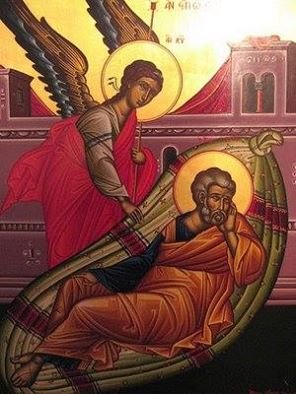 The appearance of the angel has solved two issues through one single sentence: “Joseph, thou son of David, fear not to take unto thee Mary thy wife”; by calling him son of David he is giving him a role and a job to do, which is to relate the child to himself as his own child and to name him Jesus, for it is the role of the father to give the name and to relate a child to his family in a legal way. By doing that Jesus became through Joseph, the legal son of David!
The appearance of the angel has solved two issues through one single sentence: “Joseph, thou son of David, fear not to take unto thee Mary thy wife”; by calling him son of David he is giving him a role and a job to do, which is to relate the child to himself as his own child and to name him Jesus, for it is the role of the father to give the name and to relate a child to his family in a legal way. By doing that Jesus became through Joseph, the legal son of David!
From the second side, the order “fear not” takes us to the real estate of that just man towards the pregnancy of Mary: He was in a state of fear because he knew and he discerned the presence of the God in that pregnancy and he was trying to keep out of the picture because he was a just man and he fears to be in the direct presence of God, because standing in the presence of God is biblically a fearful thing.
The angel never discussed the issue of the Mosaic Law with regards to the mysterious pregnancy, but only the fear of Joseph in this respect. The Angel asked Joseph to name the child Jesus “for he shall save his people from their sins.” And this is directly linked the prophecy of Isaiah where “they shall call his name Emmanuel, which being interpreted is, God with us.” This means that God has finally settled among His people through His incarnation.
In this perspective the issue of the “till” in this sentence “he knew her not till she had brought forth her firstborn son”, can be much better understood through the fear of Joseph than through the usual linguistic explanations and similar occurrences of the until in the bible. Has anybody ever heard of a queen getting married after being married to the King, even after his death? How can the bride of The Heavenly King be married to someone else in His everlasting presence? The idea itself is fearful…
I cannot imagine the position of Joseph towards Mary after it has been confirmed to him by the angel that which is conceived in her is of the Holy Spirit…
In the Third Holy Hour of the Nativity the hymn says that Joseph searched the books first, and was then instructed by the Angel to adopt the Divine Child.(1)
+Rev. Father Mansour Azar
References:
(1) Royal Hours, 3rd hour:
Glory to the Father, and to the Son, and to the Holy Spirit.
Tone 3
Tell us, O Joseph,
How is it that thou bringest to Bethlehem, great with child,
The Maiden whom thou didst receive
from the Holy of Holies?
“I have searched the Prophets,” he said.
And “I have been instructed by an angel.
I am convinced that Mary will give birth to God
in a manner beyond understanding.
Wise men from the East will come to worship Him,
offering precious gifts in adoration.”
O Lord, incarnate for us, glory to Thee!
